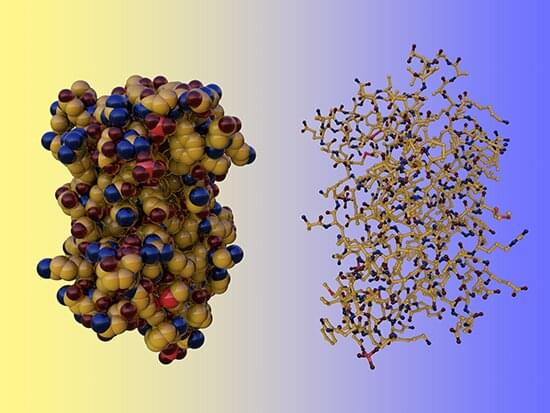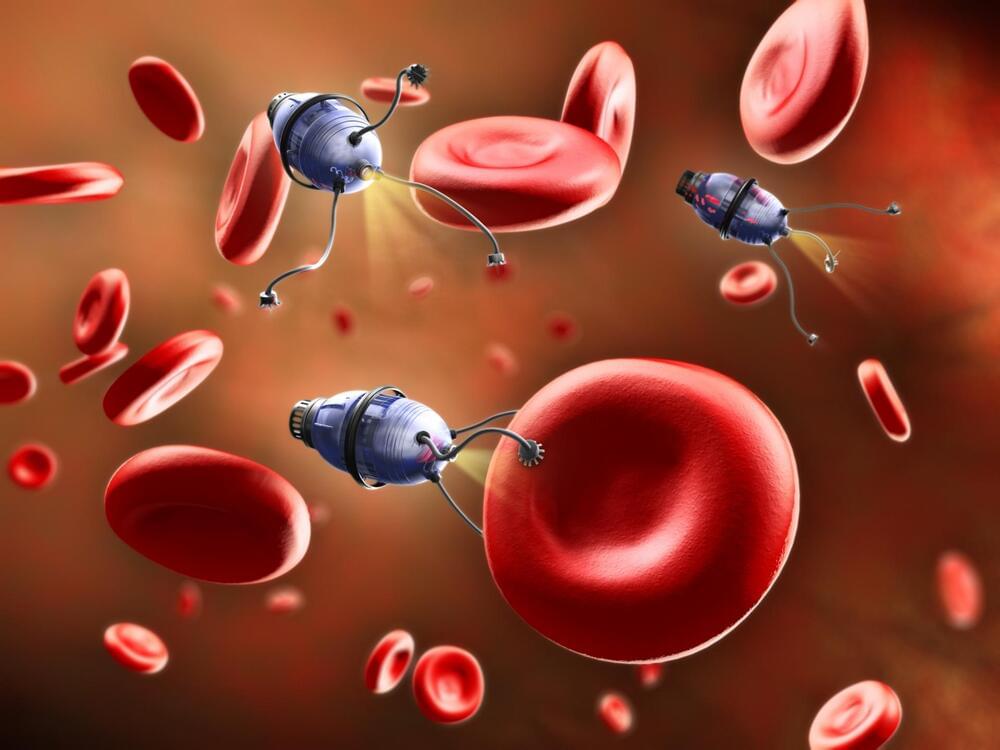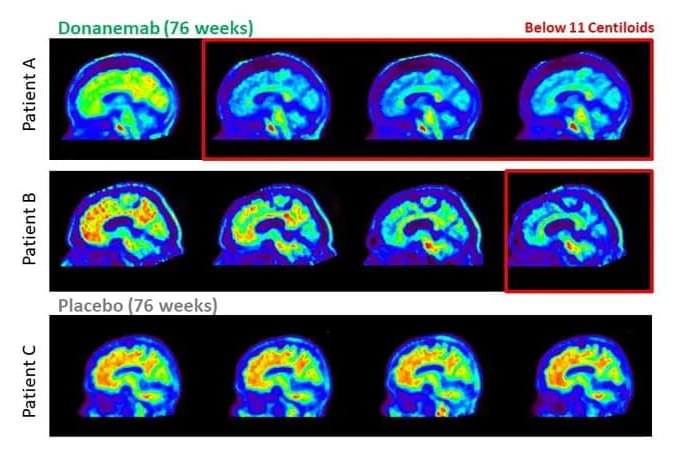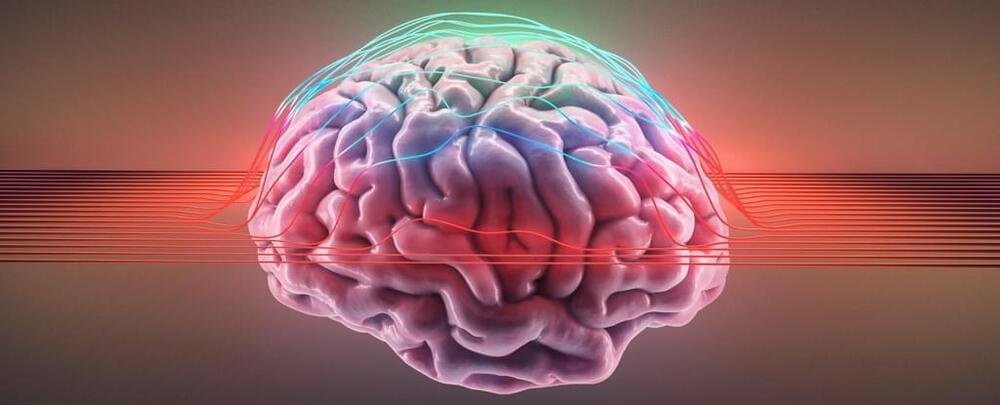Learn about the causes, symptoms, diagnosis & treatment from the MSD Manuals — Medical Consumer Version.
Archive for the ‘biotech/medical’ category: Page 294
May 7, 2023
Long telomeres, the endcaps on DNA, not the fountain of youth once thought, and scientists may now know why
Posted by Shubham Ghosh Roy in categories: biotech/medical, genetics, life extension
In a study of 17 people from five families, Johns Hopkins Medicine researchers say they found that ultra-lengthy DNA endcaps called telomeres fail to provide the longevity presumed for such people. Instead, people with long telomeres tend to develop a range of benign and cancerous tumors, as well as the age-related blood condition clonal hematopoiesis.
Reporting in the May 4 issue of the New England Journal of Medicine, the Johns Hopkins researchers say clonal hematopoiesis is common among this long-telomere group, and the blood condition combined with long telomeres may help mutations stick around longer in blood cells.
“Our findings challenge the idea that long telomeres protect against aging,” says Mary Armanios, M.D., professor of oncology at the Johns Hopkins Kimmel Cancer Center, and professor of genetic medicine, molecular biology and genetics, and pathology at the Johns Hopkins University School of Medicine. “Rather than long telomeres protecting against aging, long telomeres allowed cells with mutations that arise with aging to be more durable.”
May 7, 2023
How interleukin-6 helps prevent allergic asthma and atopy
Posted by Genevieve Klien in category: biotech/medical
The immune system has a biological telecommunications system—small proteins known as interleukins that send signals among the leukocyte white blood cells to control their defense against infections or nascent cancer. Interleukin-6, or IL-6, is one of these key mediators of inflammation, and it can, as needed, provoke the immune system into attack against pathogens.
However, imbalances of IL-6—too much or too little—can cause disease, even in the absence of infection. Excess IL-6 is central to the pathogenesis of inflammatory reactions like rheumatoid disease and cytokine storms, while mutations that interrupt IL-6 signaling are also harmful, causing allergic disorders known as atopy that affect the skin, airways or body, including atopic dermatitis, allergic airway inflammation and hyper-IgE Syndrome, or HIES.
Loss of IL-6 signaling was known to cause an increase in inflammatory T helper 2, or Th2, cells. T helper cells act like generals, ordering other immune cells into action. Now, an unrecognized mechanism of how interrupted IL-6 signaling creates Th2 bias, as well as the specific role of IL-6 signaling in that process, has been described by Beatriz Léon, Ph.D., and colleagues at the University of Alabama at Birmingham. Their study is published in Cellular & Molecular Immunology.
May 7, 2023
From science fiction to reality: Xenobots are redefining biotechnology
Posted by Gemechu Taye in categories: biotech/medical, robotics/AI
The xenobot had been predicted to be a valuable tool in medicine and other fields. It is expected not only to help treat cancer but keep the aquatic bodies clean.
Ever imagined a world where we could utilize the power of a living cell to carry out certain functions? Just like we have robots that help in several aspects of our lives, some scientists in US universities have come up with a living robot known as the xenobot.
The xenobot had been predicted to be a valuable tool in medicine and other fields. In years to come, it wouldn’t only help treat cancer, but it would help keep the aquatic bodies clean.
May 7, 2023
New drug slows Alzheimer’s
Posted by Will Fox in categories: biotech/medical, life extension, neuroscience
Drug company Eli Lilly reports that donanemab can slow the pace of Alzheimer’s disease by 35%, following a Phase 3 study in human patients.
Brain scans of Alzheimer’s patients with treatment (A and B) and placebo ©, showing clearance of amyloid plaques. Credit: Eli Lilly.
In recent years, Alzheimer’s has become an increasingly major public health issue. The prevalence of this disease – a progressive neurological disorder that affects memory, thinking, and behaviour – is being driven by aging populations, changes in lifestyle factors, and improvements in diagnostic techniques.
May 7, 2023
A Chance Event 1 Million Years Ago Changed Human Brains Forever
Posted by Paul Battista in categories: biotech/medical, evolution, neuroscience
Like treasured recipes passed down from generation to generation, there are just some regions of DNA that evolution doesn’t dare tweak. Mammals far and wide share a variety of such encoded sequences, for example, which have remained untouched for millions of years.
Humans are a strange exception to this club. For some reason, recipes long preserved by our ancient ancestors were suddenly ‘spiced up’ within a short evolutionary period of time.
Because we’re the only species in which these regions have been rewritten so rapidly, they are called ‘human accelerated regions’ (or HARs). What’s more, scientists think at least some HARs could be behind many of the qualities that set humans apart from their close relatives, like chimpanzees and bonobos.
May 7, 2023
Wonder Material Graphene Just Broke Another Major Record in Physics
Posted by Shailesh Prasad in categories: biotech/medical, quantum physics
Graphene is a special material. Among its many talents, it can act as a superconductor, generate a super-rare form of magnetism, and unlock entirely new quantum states.
Now graphene has another amazing credit: it can record levels of magnetoresistance without a need to push the temperature down towards absolute zero.
High magnetoresistance – a material’s ability to change its electrical resistance in response to a magnetic field – is relatively rare, yet materials that can shift their properties in this fashion are useful in computers, cars, and medical equipment.
May 7, 2023
Quantifying Biological Age: Blood Test #3 in 2023
Posted by Mike Lustgarten in categories: biotech/medical, genetics, life extension
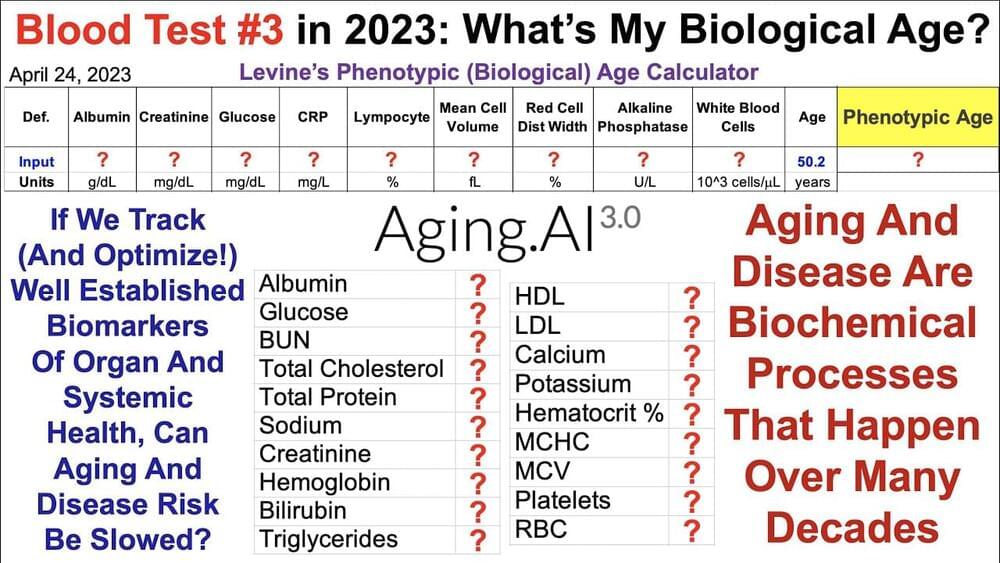
Join us on Patreon!
https://www.patreon.com/MichaelLustgartenPhD
Discount Links:
NAD+ Quantification: https://www.jinfiniti.com/intracellular-nad-test/
Use Code: ConquerAging At Checkout.
Continue reading “Quantifying Biological Age: Blood Test #3 in 2023” »
May 7, 2023
Exercise can increase the number of immune cells in the bloodstream of cancer patients
Posted by Shubham Ghosh Roy in categories: biotech/medical, health
Exercise decreases the risk of cancer and reduces side effects of cancer treatments. In addition, it improves patients’ quality of life and the prognosis of cancer patients. This is according to two new Finnish studies.
“It was previously thought that cancer patients should just rest after a cancer diagnosis. Today, we have more and more researched information that exercise can even improve the prognosis of cancer. However, it is not yet fully known how exercise controls cancer,” explains Research Assistant Tiia Koivula.
Previous preclinical studies have found that exercise affects the functioning of the immune system so that more immune cells are transferred to the tumor site and they become more active in destroying cancer cells. Two studies conducted at the Turku PET Center of the University of Turku in Finland aimed to find out whether a short exercise bout affects the mobilization of immune cells in cancer patients.
May 7, 2023
Foods to avoid with pituitary tumors
Posted by Shubham Ghosh Roy in categories: biotech/medical, neuroscience
Pituitary tumors grow in the pituitary gland, the pea-sized structure just behind the eyes at the base of the brain. These tumors are almost always noncancerous, but they can cause problems if they create an overproduction of hormones in the body or grow large enough to press against the brain and optic nerves.
If you have a pituitary tumor, you may be wondering if there are any lifestyle changes you should make, such as your diet. We spoke with our clinical dietitians to learn more about diet and nutrition for people with pituitary tumors.


